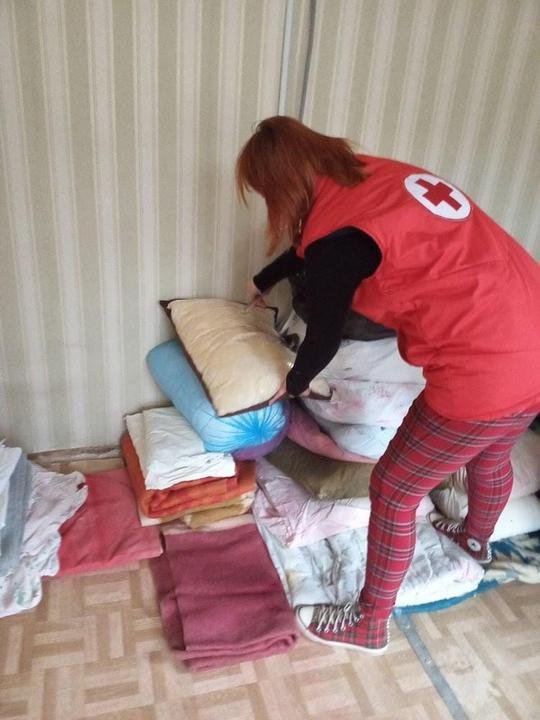Helping Ukraine
The Russian invasion of Ukraine is both a tragedy and a humanitarian disaster in the making. The international community’s response to this war continues to evolve and governments are imposing new sanctions and restrictions.
Our teams are working around the clock to support people in Ukraine through our products, defend against cybersecurity threats, surface high-quality, reliable information and ensure the safety and security of our colleagues and their families in the region.
Here are a few of the actions we’re taking.
Providing support from Google.org
Together, Google.org and Google employees are contributing $15 million in donations and in-kind support to aid relief efforts in Ukraine, including $5 million so far from our employee matching campaign and $5 million in direct grants. We’re also contributing $5 million in advertising credits to help trusted humanitarian and intergovernmental organizations connect people to important sources of aid and resettlement information.

According to the Polish Red Cross, since Thursday last week over 300,000 people have arrived in Poland. (photo credit: Red Cross)
Updating Search and Maps in Ukraine
We've launched an SOS alert on Search across Ukraine. When people search for refuge and evacuation information, they will see an alert pointing them to United Nations resources for refugees and asylum seekers. We’re working with expert organizations to source helpful humanitarian information as the situation unfolds.
And after consulting with multiple sources on the ground, including local authorities, we’ve temporarily disabled some live Google Maps features in Ukraine, including the traffic layer and information about how busy places are, to help protect the safety of local communities and their citizens. We’ve also added information on refugee and migrant centers in neighboring countries.
Expanding security protections
Our security teams are on call 24/7. Russia-backed hacking and influence operations are not new to us; we’ve been taking action against them for years. Over the past 12 months alone, we’ve issued hundreds of government-backed attack warnings to people in Ukraine using products like Gmail. We’ve been particularly vigilant during the invasion and our products will continue to automatically detect and block suspicious activity.
While we have not seen meaningful changes in the levels of malicious activity in this region overall, our Threat Analysis Group (TAG) has seen threat actors refocus their efforts on Ukrainian targets. For example, we’ve seen the attackers behind the GhostWriter threat group targeting Ukrainian government and military officials. We blocked these attempts and have not seen any compromise of Google accounts as a result of this campaign.
We also automatically increased Google account security protections (including more frequent authentication challenges) for people in the region and will continue to do so as cyber threats evolve. Our Advanced Protection Program — which delivers Google’s highest level of security — is currently protecting the accounts of hundreds of high-risk users in Ukraine. And “Project Shield,” a service providing free unlimited protection against Distributed Denial of Service attacks, is already protecting over 100 Ukrainian websites, including local news services.
Promoting information quality
In this extraordinary crisis we are taking extraordinary measures to stop the spread of misinformation and disrupt disinformation campaigns online.
Beginning today, we’re blocking YouTube channels connected to RT and Sputnik across Europe. This builds on our indefinite pause of monetization of Russian state-funded media across our platforms, meaning media outlets such as RT are not allowed to monetize their content or advertise on our platforms.
We have also significantly limited recommendations globally for a number of Russian state-funded media outlets across our platforms. And in the past few days, YouTube has removed hundreds of channels and thousands of videos for violating its Community Guidelines, including a number of channels engaging in coordinated deceptive practices.
Of course we are working to not just reduce the reach of unreliable information, but also to make reliable and trustworthy information readily available. Our systems are built to prioritize the most authoritative information in moments of crisis and rapidly-changing news. When people around the world search for topics related to the war in Ukraine on Search or YouTube, our systems prominently surface information, videos and other key context from authoritative news sources.
Helping our colleagues in Ukraine
We remain extremely concerned for the safety and wellbeing of our Ukrainian team and their families. Our local Security and People Operations teams have been working since January to provide help, including physical security support, paid leave, assistance options and reimbursement for housing, travel and food for anyone forced to leave their homes.
Operating our services in Russia
We are committed to complying with all sanctions requirements and we continue to monitor the latest guidance. As individuals, regions and institutions like banks are sanctioned, products like Google Pay may become unavailable in certain countries.
Most of our services (like Search, Maps and YouTube) currently remain available in Russia, continuing to provide access to global information and perspectives.
We will continue to monitor the situation and take additional actions as needed – and we join the international community in expressing sincere hope for a return to a peaceful and sovereign Ukraine.
by Kent Walker via The Keyword
Comments
Post a Comment